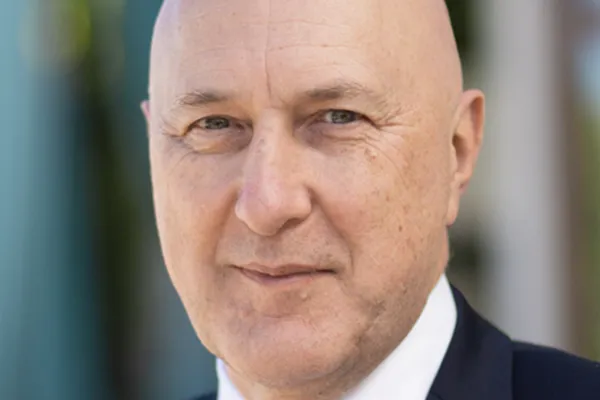Mario Blejer, a former Argentine central banker who runs the Bank of England's Centre for Central Banking Studies, spoke with LatinFinance's Wall Street editor, Maria O'Brien.
| Mario Blejer |
Blejer disagreed with Roberto Lavagna, who was finance minister at the time, on issues of central bank independence. Blejer favored providing liquidity to Argentina's stricken banks to prevent their full-blown collapse; Lavagna opposed injecting cash into the system for fear that it would lead to inflation. Blejer resigned in June 2002 after just six months on the job.
Blejer, who spent most of his career prior to the Argentine appointment as an adviser at the International Monetary Fund, moved to London where he became director of the Bank of England's Centre for Central Banking Studies. Central banks are playing an increasingly important role in Latin America and in other emerging market countries. Most Latin American nations have granted their central banks effective, and sometimes statutory, independence and have adopted inflation-targeting monetary policies together with floating exchange rate regimes. They have also piled up record foreign currency reserves, which hit a total of $67.8 billion for the region at the end of last year.
Exchanging Ideas
Blejer says the Centre's mission is not only to teach, but also to be a place where policy makers can interchange views and experiences – a sort of "central banker's club." He sees it as a means for central bank staff to stay "connected" and get to know those who might eventually have positions at the banks.
The Bank of England has a long history of training central bankers around the world, even though it only created the Centre in 1990. Before then, the Bank of England helped set up central banks for former British colonies in Africa, Asia and the Caribbean. Its tentacles of influence even extended to South America. "As far back as the 1930s, the Bank of England helped set up central banks in Latin America," explains Blejer.
It even helped design Argentina's central bank, which commemorated its 70th anniversary last May.
The Centre also serves the British government as a form of "soft" foreign policy. The Centre draws on the Bank of England's experts and brings in other specialists from the private sector and academia, and foreign central bankers are encouraged to attend highly specialized courses when visiting London. Blejer says the courses are tailored to the specific needs of each visiting delegation. "The Koreans, for example, send a delegation every year, as do the Chinese. We have about 50 requests like this every year, but of course we can only accommodate a few."
Blejer has also focused on developing an Events Abroad program to train larger groups of central bankers in a country or, more frequently, in a region. For example, the Centre ran a conference last year on monetary policy responses to supply and asset price shocks co-sponsored by the central bank of Chile; an event with the Mexico-based training institute Centro de Estudios Monetarios Latinoamericanos (CEMLA); and a workshop on institutional governance in Brazil.
Blejer argues that organizations like his Centre and CEMLA reinforce certain principles that are universal for well-run central banks, such as independence, communication and transparency. "There are certain channels of communication that seem to work everywhere, like the inflation report, an explanation of how decisions are made and a clear understanding by the public of how decisions are made," Blejer says. "To be able to be independent, you have to be accountable, and to be accountable you have to inform. And to be able to inform you have to have good transparency and communication," Blejer says.
Principles like transparency function well in developed countries and select emerging markets, like Brazil or Mexico, he adds.
The Centre sent teams of experts to Guatemala in 2004 and Honduras in 2005 to help those countries' central banks develop econometric and forecasting models. "In the very basic countries, they don't worry about financial stability, they worry about monetary policy and they worry about bank stability in a very narrow sense," explains Blejer. "They want to understand the modern instruments of monetary policy."
Central banks in countries with dollarized economies, such as Ecuador, Panama and El Salvador, face many of the same challenges as eastern European countries, he notes. The latter have floating currencies but their economies are highly 'euro-ized.' "The question is whether you want to be dollarized or you want your monetary policy based on the reality of a dollar economy. That is a big difference," Blejer states. "In Europe they don't want to abandon the influence of the euro because they are converging towards Europe."
Strengthening Credibility
Blejer says a growing number of Latin American central banks have built up credible reputations that are reflected in strengthening currencies and a growing interest in holding local currency assets. "New Zealand and South Africa have been [issuing bonds in their own currencies] for many years, and they were able to do that because their central banks had a lot of credibility," he adds.
Latin America's central banks have also accumulated substantial foreign currency reserves. Some central bankers, such as Chile's Vittorio Corbo, argue that countries with floating rate regimes and a record of sound macroeconomics should be able to reduce excess reserves. Blejer thinks extra reserves should be used to buffer a country against future exogenous shocks, and that Latin American central bankers could be more proactive in managing their reserves. "Central banks do not necessarily have to be profit maximizers, but at the same time they [should] get as much as they can out of their reserves because these are national property." He estimates that 30 central banks have set up offices in London and New York to manage their reserves 24 hours a day "on very commercial criteria. As a result, their reserves have increased quite a lot."
Blejer acknowledges that Latin American currencies, such as the Brazilian real, have strengthened in part because of the boom in commodity prices, but he insists that the true driver has been the increasing credibility of local central banks. Henrique Meirelles, for example, governor of Brazil's central bank since 2002, inherited a legacy of intellectual integrity, innovation and independence from former governor Armínio Fraga, who took office in 1999.
Blejer, who fought to shore up independence at Argentina's central bank when he was its president, says central bank functional autonomy is just as important as, or perhaps more so than, formal independence. "Good policies are sometimes easier to implement if you are independent, but not necessarily."
Central banks in developed countries are also struggling with ideas like independence, transparency and impartiality. For instance, Antonio Fazio, who had been appointed governor for life at the Bank of Italy, was accused last year of improperly favoring local financial group Banca Popolare Italiana over Dutch rival ABN Amro in a battle for control of Italy's Banca Antonveneta. He ignored demands for his resignation until public opinion and political pressure drove him from office last December. The Italian parliament voted that same month to establish a once-renewable six-year term for future governors and transferred some of the central bank's regulatory powers to Italy's competition authority.
And in 2004, Ernst Welteke had to quit as governor of the Bundesbank in Germany after a local newspaper reported that Germany's Dresdner Bank had paid a $9,200 hotel bill for Welteke and his family to stay at Berlin's Adlon Hotel for a celebration of the euro's first year as a cash currency. Even the Bank of England has had its scrapes with scandal. In 1995, Rupert Pennant-Rea quit as that bank's deputy governor after having admitted to engaging in intercourse with his girlfriend on the floor of the British governor's dressing room.
Blejer says many central banks make the transition to independence without taking a hard look at the institution's governance. "If you give independence to a non-elected body of the central bank, that body has to behave particularly well," he asserts. "You need very good internal rules, transparency and good understanding inside and outside of how decisions are made and why." Setting fundamentally important rules for making promotions or appointments transparent and for setting the bank's budget are also important. Blejer says reporting to Congress is also a sound way of making the central bank accountable to the public at large.
Anchoring The Economy
Central bank independence will become even more important as Latin America and the Caribbean head into a busy election year. Blejer says the region's central banks need to "provide an anchor to the economy that will not be subject to the ups and downs of a political cycle." He points to Bolivia's central bank as an example of an institution that has been able to withstand political upheaval. Now it faces the test of coexisting with a radical new leader, President Evo Morales. Juan Antonio Morales, the Bolivian central bank's governor, has been in office for more than 10 years, and in spite of political turmoil during that period, today the country has low inflation and is pretty stable economically. "The central bank was able to stand quite firm because he has very strong personal credibility," Blejer asserts. "His personal credibility anchored the central bank."
Blejer is optimistic that central banks in countries such as Brazil, Chile, Colombia, Mexico and Peru – which have developed reputations for autonomy, transparency and good communication – will withstand a change of government in the upcoming elections. He says it doesn't matter which way the incoming presidents lean, be it left, right or center. "I am highly confident that the central banks have changed enough to withstand the political turmoil that could happen."
Teaching Others
Mario Blejer, a 57-year-old Argentine, is director of the Bank of England's Centre for Central Banking Studies and an adviser to Bank of England Governor Mervyn King. Before joining the Bank of England in December 2002, Blejer was the deputy governor of Argentina's central bank, and – for the first six months of 2002 – he led the Argentine central bank after its then-governor, Roque Maccarone, resigned during the chaotic weeks following Argentina's debt default and subsequent 75% currency devaluation.
Blejer's brief stint at the Argentine central bank was a break from a career largely spent at the International Monetary Fund, where he was a senior adviser for 21 years. He also held the Walter Rathenau Professor of Economics at the Hebrew University of Jerusalem from 1996 to1999; and he has taught at Boston University, New York University and Johns Hopkins University.
Many hoped Blejer would help bridge the widening chasm between the government of Argentine President Néstor Kirchner and the IMF. However, Blejer clashed with then-finance minister Roberto Lavagna over central bank independence, and his departure was timed to highlight that issue.






